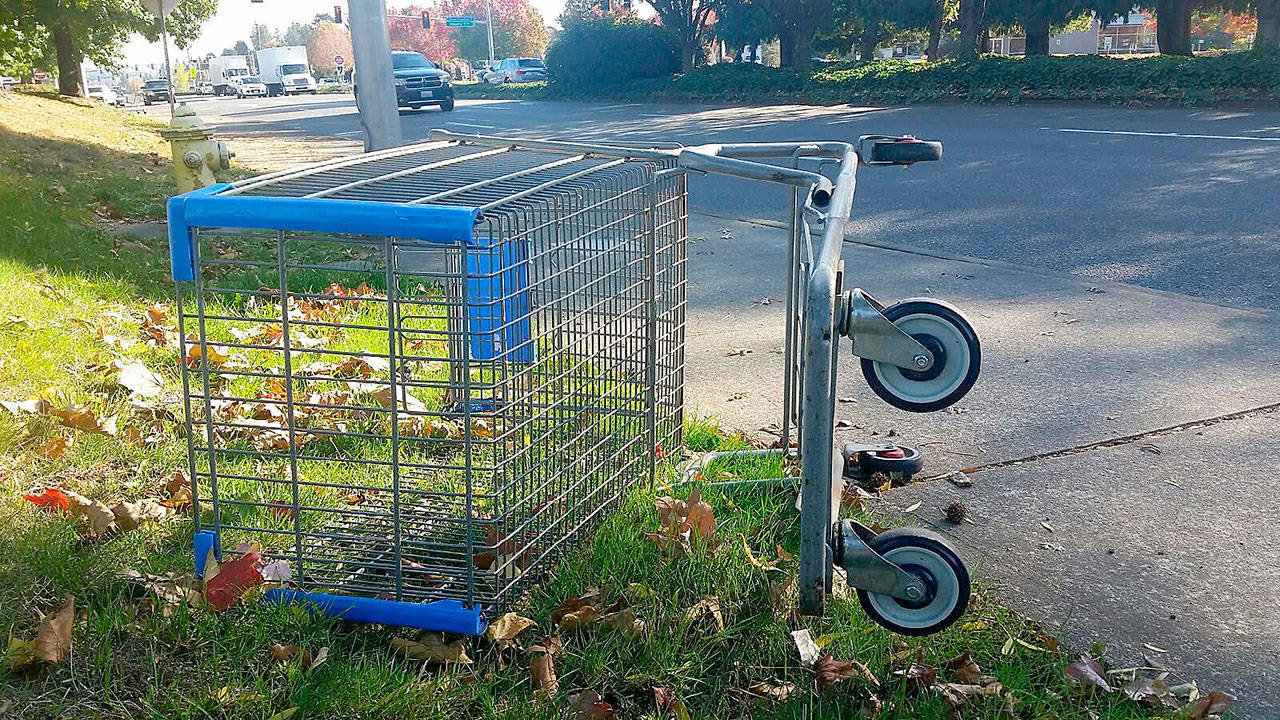A “public nuisance.”
That’s what the City of Auburn calls them.
And when abandoned shopping carts hit the eye all over the city, whether they be left on a street or at a bus stop, whether pushing up petunias on a patio or down in a ditch, it would take a real pudding head to argue the aptness of the phrase.
“As everybody probably knows, it’s an issue all around the country, and in other countries as well,” Randy Bailey, assistant director of community development and public works, told a recent study session of the Auburn City Council.
Councilman Bill Peloza said there are still too many carts in the downtown and in city neighborhoods.
“We have a few, but I think we’re doing a pretty good job … We had just as many carts when we were enforcing the ordinance as we do now,” Bailey said.
“I don’t agree with you, I really don’t,” Peloza said. “I could stop, take a photo and send it to (City maintenance and operations), but that isn’t my job.”
A change to city code appears to be in the works, and Bailey outlined the path to get there, as follows:
• Open dialogue with store owners to create a process that works for everybody;
• Create cost-effective standards to reduce or eliminate cart abandonment;
• Avoid any ham-handed approach;
• Continue to meet in-person and by phone with cart owners;
• Consult with code enforcement officers and police;
• Continue to review what has and has not worked elsewhere.
Under current city rules, which apply to any business inside city limits that provides shopping carts for customer use, city maintenance operation employees may pick up abandoned carts where they are found, return them to their owners and bill their owners to get them back. Every shopping cart must have identification attached permanently to it, listing the business owner and the phone number and address where the cart can be returned.
This represents a softening over the approach the city took more than 10 years ago, when city leaders adopted an ordinance directing employees to pick up abandoned carts, bring them back to the maintenance facility on C Street Southwest, monitor them, tag them monthly and send their owners a bill of $30 for each shopping cart collected.
Ignore the letters and the City could tack $75 onto each bill.
Bailey said while the city had been collecting about $4,000 a year under the ordinance, carrying it out cost about $8,000 every year.
So several years ago, the City changed “shall” pick up to “may.” While the city may still follow the old ordinance with problem stores, no stores constitute a problem at present, Bailey said, and “everybody is doing their darnedest.”
Auburn’s Walmart store sends a crew out every two hours to scout and return missing carts, many of them along busy 15th Street Southwest in front of the Outlet Collection Mall.
Whereas Auburn developed its own regulations, most cities in Washington state simply incorporate state law that makes it a misdemeanor for someone to take a cart from a store or to have one.
Throughout the nation, Bailey said, research shows most cities deal with the problem with a rough combination of what Auburn does, with added emphasis on stores.
Common to such regulations – it is illegal to abandon shopping carts.



